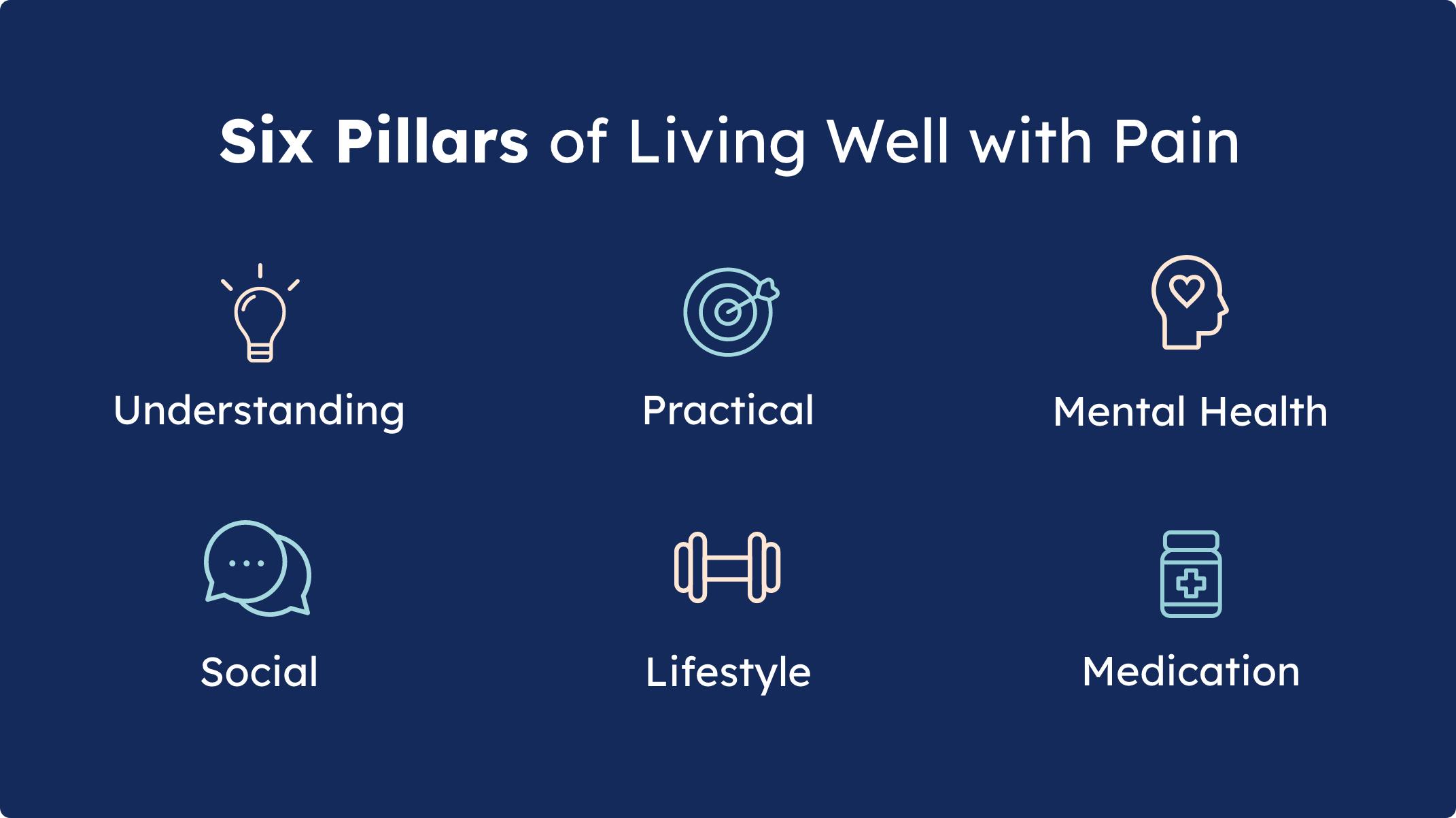Persistent pain
What is Persistent pain?
The technical definition says persistent pain is pain that has lasted more than 3 months but in reality it is far more than just a timescale. It really means a continued pain experience that has no easy solutions and can have a huge impact on people.
Persistent pain is always complex. The pain we feel is modified by so many factors but this gives us the opportunity of trying lots of different things to help manage the situation to the maximum.
The following sections try to separate out some key themes and topics. There is plenty of overlap, so feel free to explore the different areas of this site over time.

The pillars of living well with pain
Understanding your pain – Click to read more
Living with persistent pain is confusing. We want to help you to make sense of your pain because without understanding, advice on the best way forward often makes no sense at all.
Practical strategies to manage persistent pain – Click to read more
Understanding how to balance your daily activities, how to manage flare ups as well as specific relaxation and mindfulness techniques to reduce the impact of stress and pain.
Mental health – Click to read more
We know that persistent pain can profoundly affect mental health. Learn how to support your own mental health in the face of persistent pain, and find local professional support.
Social circle, relationships and work – Click to read more
Pain can disrupt our lives and make us feel alone. Find out how to maintain a healthy social and work life, despite the challenges which come with persistent pain.
Healthy lifestyle – Click to read more
Learn how to practice healthy daily habits such as regular movement, healthy nutrition and good sleep, despite pain.
Medication and treatments for persistent pain – Click to read more
This section delves into the role of medications and local professional support to help you to learn the necessary skills to live well with pain.